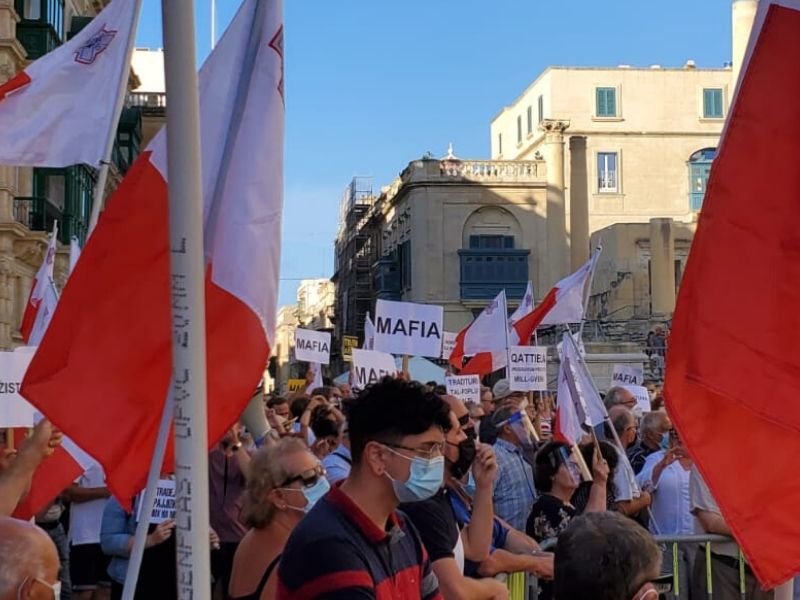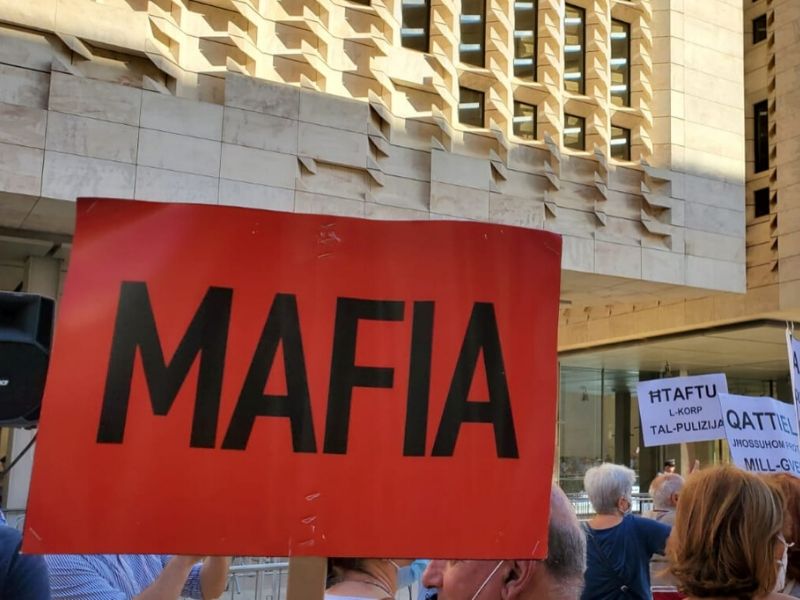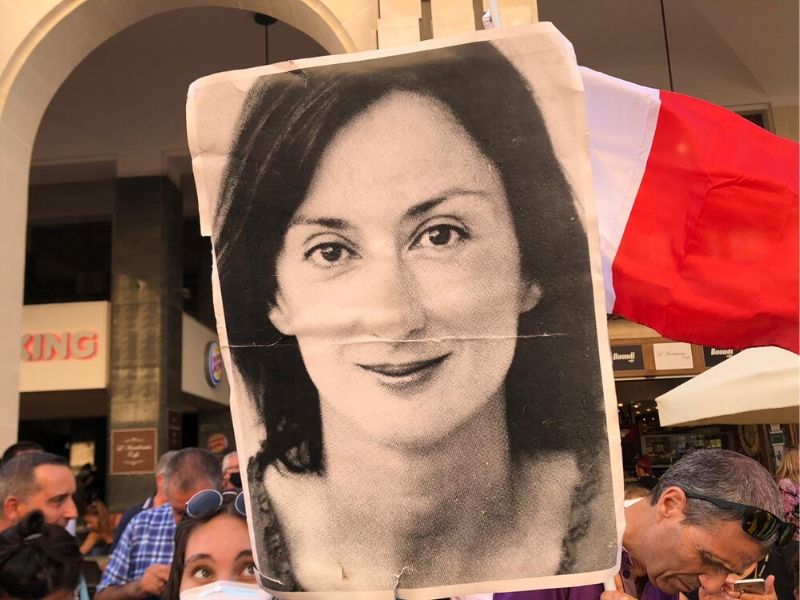People took to the streets of Valletta once again to protest against corruption at the highest levels of Malta’s institutions and call for the truth and justice for the death of journalist Daphne Caruana Galizia
Wearing masks and blowing whistles, the protestors shouted out “mafia”, “corrupt”, “murderers” and “Daphne was right” while standing outside of Parliament and waving Maltese flags. Holding up signs saying “mafia” and “Robert Abela is Joseph Muscat’s puppet”, the activists chanted “out, out” as they stayed behind a maze of steel barriers that blocked off access to Parliament.
Organised by civil society NGO Repubblika and activists Occupy Justice, the protest called for the government to set up Joint Investigation Teams with Europol to investigate Caruana Galizia’s death and the corruption linked to it. This reiterates similar calls made by Pieter Omtzigt, the special rapporteur to the Parliamentary Assembly of the Council of Europe, and Caruana Galizia’s family.

The Maltese government, however, has stated that Europol is still collaborating on the murder investigation and there would be no added value setting up a Joint Investigation Team.
The protestors also called for all involved politicians to shoulder their responsibility and resign from their roles or get kicked out. The same goes for the directors of Enemalta who had to take responsibility for the “corrupt” deal signed in Montenegro by former prime minister Joseph Muscat.
Marion Pace Asciak, of Repubblika, called for Muscat’s resignation letter to be published and make public. “Let me make it clear, resignations are the first step to accountability,” she said. President George Vella is refusing to publish its contents, arguing that “the public interest that is served by non-disclosure outweighs the public interest in disclosure.”
Earlier in the day, Schembri stepped onto the witness stand and testified in the compilation of evidence against Yorgen Fenech, the man who is denying the charges of acting as the mastermind behind her death.
Schembri failed to live up to his promise of revealing the truth and, instead, his hours-long testimony created further questions and doubts, as he denied any involvement that had been attributed to him. He did, however, admit that he knew the company 17 Black belonged to Fenech.
Schembri’s testimony is the latest in a series of statements made in court – either in Fenech’s compilation of evidence or before the public board of inquiry, which is investigating whether Caruana Galizia’s murder could have been avoided. After more than three months of the courts being closed due to the coronavirus pandemic, the sittings have started again at full speed.
The protest comes in the wake of a strongly worded article by Ombudsman Anthony Mifsud who, in his annual report, described 2019 as the year where civil society became more proactive, organised and vociferous.
“Spurred on by dramatic events that through concert, design or pure coincidence exposed the negative corruptive ties between big business and the public administration. Civil society was galvanised into action. This and other factors eventually brought about the downfall in disgrace of an administration that enjoyed the backing of a sizeable majority of the electorate through implementing successful, economic policies,” he said.

Mifsud pointed out the fragility of the country’s institutions, which he described as a “worrying experience” as these were unable to cope with the “added need” for transparency and accountability of public administration”.
“Their inability and failure to promptly bring to justice those responsible for serious violations of the law gravely undermined the democratic credentials of the country,” Mifsud said.
But the call for change went beyond Malta’s borders. International organisations including the Council of Europe, the Venice Commission, Moneyval and others carried out thorough investigations on the state of the country’s institutions.
“They found them to be seriously flawed and suggested radical reforms to bring them in line with the basic requirements of a modern democratic state,” he said.
While a number of positive measures to improve the rule of law had been implemented, these were “were completely neutralised by an arrogant and obsessive culture of impunity enjoyed by persons flaunting the right friendships and connections and having the substantial financial clout to influence the decisions of the public administration”.
When these persons acted in cahoots or with the connivance of politicians and public authorities and when those who have the duty to monitor, control and check abuse “are either cowed into silence or prone to turn a blind eye to tolerate, if not condone, abuse and violation of laws and regulations, the situation becomes dangerous,” Mifsud said.












